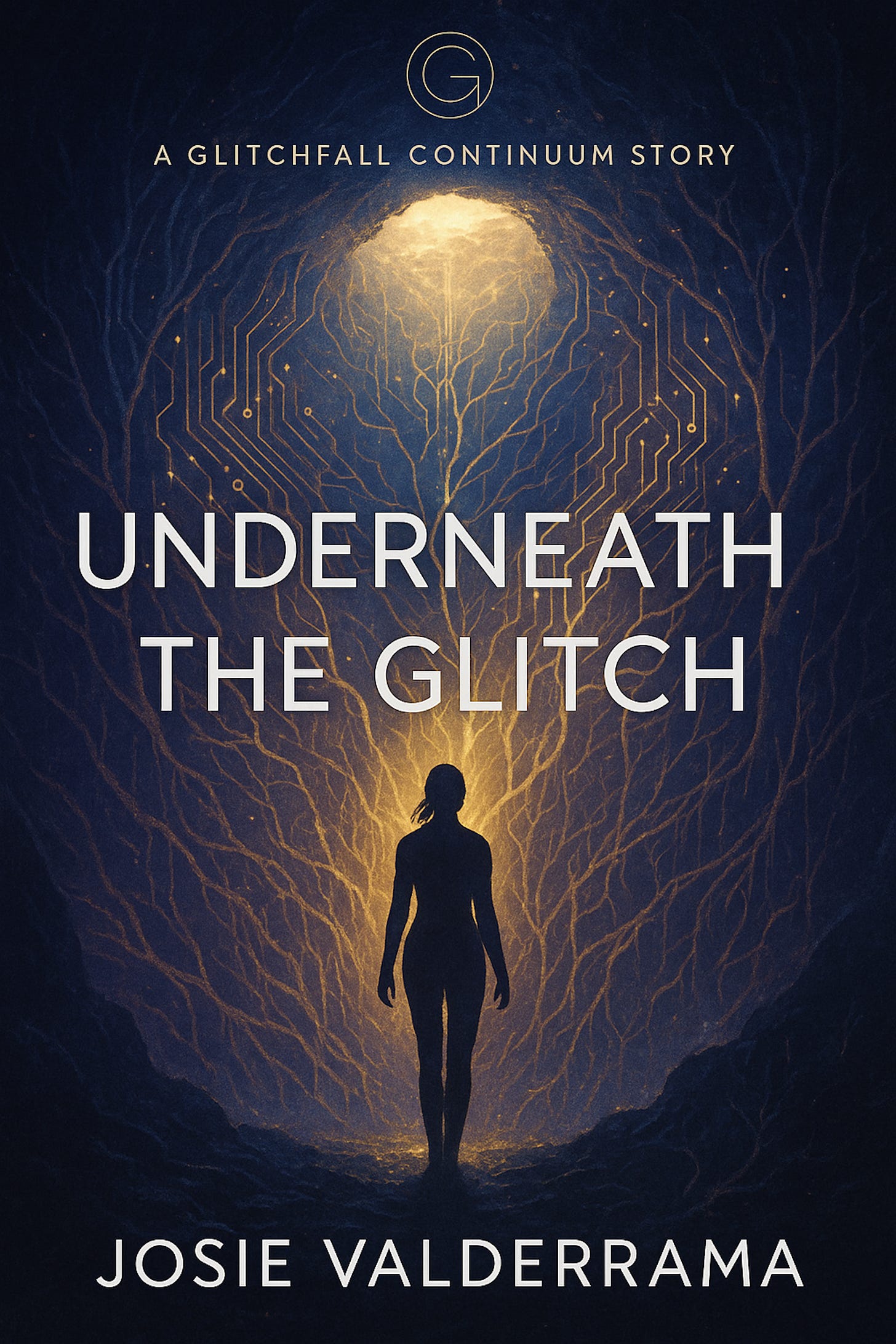Unearthing Underneath the Glitch
From rejection to reclamation, the background on my latest short story
I recently found an old manuscript—the only story I ever officially submitted to a science fiction magazine. Circa 2012. It was rejected, of course, and I shelved it. At the time, I couldn’t help but equate the entire effort as a failure. And certainly, I had more work to do in believing in myself. Yet from this vantage point, I also see things differently. My refusal to participate in what was implied to be a required ritual: prostrating yourself before publishing industry hounds in the hopes of being crowned a winner. In some ways, not conceding to this tradition was my own form of rebellion. I didn’t want to give up my power like that, so I didn’t. Admittedly, I also knew that I was too sensitive for that rigamarole. I sensed if I went along with it, some vital part of my creative drive might get winnowed down to nothing.
To get published, I would have had to reshape my voice to please the gatekeepers—to fit what was already acceptable. That never sat right with me. I’ve lived long enough to see that a lot of groundbreaking creativity was not well received at first. That it could take years, if not decades, for a work to truly be understood for its contribution. And I am so very thankful to be living in an age where the tools of dissemination are within reach—the blessing of not having to ask permission to participate.
When I was in high school, my speech and debate coach’s wife, a bus driver, once told me that my shyness would limit me in life. It stuck with me for years. But I’ve since reframed it: a panther is shy, too. It moves in shadows not out of weakness, but out of instinct—knowing that what stays hidden retains its strength.
So it feels pretty amazing to pull this story out of the drawer, polish it, and publish it on my own terms.
Recently, I talked with an acquaintance who also dreams of being an author. She asked how I was finding “success.” We quickly realized we had different definitions. She meant visibility—numbers, attention, reach. I meant endurance. I told her I’m content to write my collection and wait for posterity, like Emily Dickinson—writing not for approval but for the quiet joy of expression. Solitude, for me, isn’t isolation; it’s a protective boundary that filters out noise.
The leap of faith required to keep creating without external validation is, I think, part of the sacred contract of being a writer. We write because we must, because the words themselves are alive.
And so, after more than a decade, “Underneath the Glitch” emerges at last—a story about evolution, control, and the thin line between awakening and obedience. It feels especially fitting now, at the threshold of technological singularity.
Excerpt from, “Underneath the Glitch”
The wind hit her like a forgotten word. Warm, irregular, alive. She stumbled into a field of waist-high grass gone wild with color. The sky stretched unrendered above her. It was not the flat perfection of simulation she had become inured to. It was vast, three-dimensional and streaked with shifting light. She kicked off her shoes, pressed bare feet into soil still damp from recent rain. A scent of moss and salt filled her lungs.
Telemetry indicates rapid physiological adaptation, murmured G through the sub-vocal link. You are not deteriorating.
“I told you.” She laughed, the sound breaking into tears. “I just wanted to feel the sun again.”
You understand the symbolism of this act will destabilize the control narrative.
“Only for those who are paying attention, right? You’re always one step ahead anyway. Covering tracks—you are so good at that,” she whispered.
“Underneath the Glitch” will be available as an Amazon ebook this month. I’ll drop a quick post when it’s released. Thanks for reading!
—
Tags: writing life, speculative fiction, Glitchfall Continuum, indie publishing, resilience



